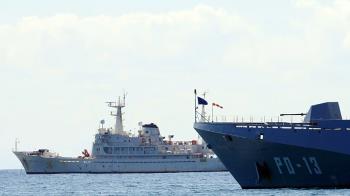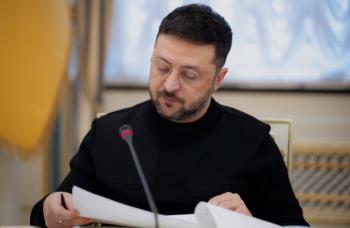Alwaght- After three weeks of taunting and saber-rattling by Israeli officials about preparing a plan for large-scale attack on Iran that would change the power equations in the region, on Saturday night Israeli attack took place, an attack way smaller scale than that Israeli officials had claimed to launch.
Still, the attack is a source of media analysis and social media reactions. While the Israeli propaganda tries to feign victory and paint it a great success, so far no picture appeared to show massive blasts or explosions in Iranian missile sites. Rather, what we saw was effective engagement of Israeli projectiles by Iranian air defenses.
Meanwhile, in addition to the war of narratives, the serious question is about the process of tensions and regional unrest after Israeli aggression. Alwaght talked to Hassan Abedini, a media analyst and political observer, asking him to elaborate on this issue.
Alwaght: What's your evaluation of the type and scale of the Israeli attack?
Abedini: The Israeli regime has repeatedly tried to show its power through the media to pretend that it can easily use military power against other countries. The most important sign used to prove this issue was the military operation against the people of Gaza and Lebanon. We know that the people of Gaza have been continuously besieged by air, sea and land since 2006, so we should not expect a 300- square kilometer enclave to overcome a military power supported by NATO, and this is an asymmetric war, though due to the asymmetric war, the people of Gaza have managed to resist the Israelis over the past year. In the case of Lebanon, Israeli capability to strike any point in Lebanon on its northern borders in the absence of air defenses does not bring Tel Aviv any strategic military success.
But when it comes to clash with Iran, two matters are considerable: First, Iran in its anti-Israeli missile operations, especially Operation True Promise II, showed that it has long arms and it can strike its enemies precisely anywhere using its missiles and drones. It showed off this capability to the world in its strikes on Israel.
Second, after the Israeli attack Saturday, Iran proved that it has much to say in air defense capabilities and actually Iranian air defenses way outperformed Israel's multilayer Iron Dome, David's Sling, and Arrow, as well as US's THAAD since they managed to destroy a majority of the Israeli projectiles fired at Iran.
So, we can say that the Islamic Republic has much to say both in missile capability and anti-missile defense and has reached very good deterrence, while its opposite is in a weak position. To thwart Iran's second missile attack in October, Israel had mobilized all of the military capacities of regional countries and the US, but it failed to intercept it. In the Saturday attack, it claimed to have used 140 aircraft and in three stages launched its attack, but it failed again. This Israeli failure made Iranian missile and air defense capabilities crystal clear to the world. This is the most important outcome of the Israeli Saturday operation. Actually, Israel understood that access to a country with 1.8 million square kilometers of area is not as easy as access to a small region like Gaza.
Alwaght: Has Israel managed to make its attack as big as Iran's Operation True Promise II?
Abedini: It was never as big as the Operation True Promise, both at propaganda and military terms. In terms of media, we can say that at 8:00 PM October 1, over 90 percent of the Iranian missiles struck Israel and the world could see that. So, the picture we have of Iran's attack is incomparable to that of the Israeli attack.
This was true in military terms. While Iran was able to hit the most protected military and security areas of the Israeli regime, including important military bases and Mossad headquarters, no heavy damage was recorded from the operation of this regime in Iran. Perhaps, Israeli regime thought that if it attacked vital facilities in Iran, it would have been attacked immediately.
Alwaght: On Saturday morning, a majority of Iranians heard about the attack from media outlets. Actually, not only they practically did not notice the Israeli military action, but also they did not see their life routines affected. What is the message?
Abedini: The Islamic Republic has reached a degree of deterrence that does not see Israel too big to pose a threat for Iranian nation. Actually, Israeli action was so trivial Iranians even did not feel it.
Alwaght- What do you think about Iran's response to the Israeli aggression?
Abedini: Though Israeli regime scored no gains from its attack, the very aggression of it on Iranian soil will certainly be responded to in the proper time and place. Actually, Iran will decide on the response. Iran will neither procrastinate nor rush to response. So, as the Islamic Republic managed to deal a heavy blow to Tel Aviv under Operation True Promise II, it has the right to respond under Article 51 of UN Charter.



























